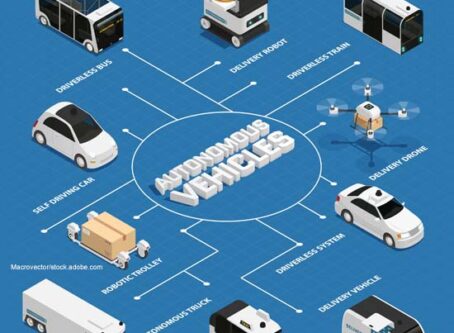Infrastructure bill talk highlights Senate committee hearing
The Senate Committee on Environment and Public Works plans to use the next infrastructure bill to repair the nation’s highways and bridges and revitalize an economy reeling from a pandemic.
On Wednesday, Feb. 24, the committee discussed the framework of an infrastructure bill during a hearing titled “Building Back Better: Investing in Transportation While Addressing Climate Change, Improving Equity, and Fostering Economic Growth and Innovation.”
Watch the hearing here.
“We can improve the conditions of our roads, highways and bridges in ways that create millions of good-paying jobs,” said Sen. Tom Carper, D-Del., committee chairman.
“American people are counting on us to make this happen. They don’t want to hear us talking about what needs to be done. They want us to work together and get it done.”
Sen. Shelley Moore Capito, R-W. Va., the committee’s ranking member, said she was committed to working in a bipartisan manner to get a bill across the finish line before the current highway reauthorization extension expires on Sept. 30.
“This bill can facilitate a recovery from the pandemic that has devastated our communities and wreaked havoc on our economy,” Capito said. “Transportation infrastructure is the platform that can drive economic growth.
“We share the same goal. Getting a bill across the finish line that delivers on addressing the transportation needs of our entire nation.”
In doing so, however, Capito said she opposes using budget reconciliation as a way to pass an infrastructure bill.
“The strong bipartisan support that exists for a surface transportation reauthorization bill and other infrastructure legislation should not extend to a multitrillion dollar package that is stocked full with other ideologically driven one-size-fits-all policies that ties the hands of our states and our communities,” she said.
In the previous congressional session, the House rolled the $494 billion highway bill into a $1.5 trillion infrastructure package that addressed a wide range of issues, including broadband, drinking and wastewater systems, postal service, clean energy sector, and health care infrastructure.
Carper indicated he would like to have a package in place by Memorial Day.
“Now we have an opportunity to build on that promise and actually enact a bill that transforms our transportation sector that is more innovative, more resilient and safer while creating good-paying jobs – lots of them,” he said.
“Things worth having are worth paying for, and we can’t just put all of our improvements that are needed on our country’s credit card.”
Witnesses
The hearing panel consisted of Michigan Gov. Gretchen Whitmer, Maryland Gov. Larry Hogan, Denver Mayor Michael Hancock, and American Association of State Highway and Transportation Officials President Victoria Sheehan.
Sheehan relayed AASHTO’s core reauthorization principles to the committee.
- Timely reauthorization of a long-term bill to prevent unnecessary program disruptions and delays in safety and mobility benefits to states and communities.
- Enact a long-term, sustainable revenue solution to the Highway Trust Fund to provide multiyear federal funding stability to support state transportation investment needs.
- Increase and prioritize formula-based funding to the states, which optimally balances national goals with state and local decision making.
- Increase flexibility, reduce program burdens, and improve project delivery to speed up delivery of transportation investments while protecting the environment and lowering project costs.
- Support and ensure DOT’s ability to harness innovation and technology to achieve a safer and more resilient, efficient and secure surface transportation system.
Planning for the future
A significant portion of the hearing was dedicated to discussing how to fund a future infrastructure package.
Considering recent reports that General Motors plans to exclusively offer electric vehicles by 2035, lawmakers discussed the need of moving away from a fuel tax as the primary way to fund infrastructure.
Several lawmakers mentioned a vehicle-miles-traveled tax as being the path forward. Carper mentioned the previous session’s bill including a VMT pilot program for all 50 states, and he indicated he would like that included in the next bill as well.
In a letter to the Biden administration in January, OOIDA said that many of its members remain skeptical that a VMT system is the solution to the highway funding problems.
Sen. Lindsey Graham, R-S.C., said that if the country is, indeed, moving away from gasoline and diesel, then Congress must start preparing now.
“What I’d like to do as we try to reauthorize the current system is to put some money aside to develop the infrastructure of the future. I think drones are going to be more available when it comes to transporting material. I think trucks are not just going to be electric but maybe hydrogen vehicles in terms of long-haul trucking,” Graham said.
“If it’s true that the gasoline-driven car is going to be less plentiful on the road by the middle of the century and maybe the dominant mode of transportation will be something other than gasoline, then we need to start now redesigning the trust fund. And we need to start now plowing money into infrastructure consistent with a new way of transportation.”
FREEZER Truck Act
Sen. Ed Markey, D-Mass., said he planned to introduce a bill aimed at replacing diesel burning refrigerated trucks with electric versions of those same trucks.
The FREEZER Truck Act is being introduced in both the House and the Senate by Markey and Rep. Yvette Clarke, D-N.Y.
It would create a grant program at the Environmental Protection Agency to provide money to electrify diesel-powered refrigeration units on trucks and vans. LL
Land Line Now’s Terry Scruton contributed to this report.









